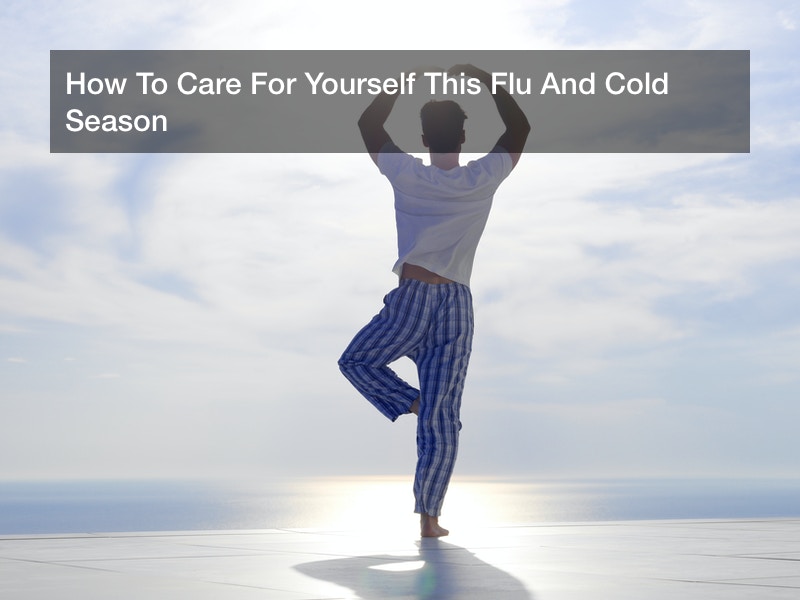Staying healthy during the winter months is certainly not always an easy feat, especially if you have children, notorious transmitters of germs. But germs can pass between just about anyone, with up to about one billion colds being contracted over the course of just one single year. Fortunately, the common cold is typically nothing more than a big annoyance, lasting, on average, for a mere 10 days. For some lucky people, the cold is gone within a mere two days (though for some it will last for upwards of 15 days).
In some cases, however, illness will be much more severe. Such will unfortunately be the case for many who end up contracting the flu. The flu, after all, is widespread throughout the country each and every year. Even during the most mild of flu seasons, it is likely that up to 5% of the population will be infected. And during some of the more brutal flu seasons, a full one fifth of the population is likely to come down with the flu.
And while many might think of tStaying healthy during the winter months is certainly not always an easy feat, especially if you have children, notorious transmitters of germs. But germs can pass between just about anyone, with up to about one billion colds being contracted over the course of just one single year. Fortunately, the common cold is typically nothing more than a big annoyance, lasting, on average, for a mere 10 days. For some lucky people, the cold is gone within a mere two days (though for some it will last for upwards of 15 days).
In some cases, however, illness will be much more severe. Such will unfortunately be the case for many who end up contracting the flu. The flu, after all, is widespread throughout the country each and every year. Even during the most mild of flu seasons, it is likely that up to 5% of the population will be infected. And during some of the more brutal flu seasons, a full one fifth of the population is likely to come down with the flu.
And while many might think of the flu as not all that much more severe than the average cold, this is not the case. The flu has the potential to lead to life threatening complications, such as pneumonia and even, in some cases, sepsis. Therefore, preventing the flu and mitigating its symptoms is something that we should all be doing as much as is possible. Fortunately, there are steps that we can all take to do just this – and to keep ourself healthy from other illnesses, for that matter.
First of all, good hygiene is one great way to spread many of the diseases that circulate throughout the winter months. Washing your hands before eating, after using the restroom, or when coming home or getting to work can all help to reduce the likelihood that you will catch – or transmit – any given illness. If you come into contact with a good number of people throughout the day, this is something that will prove particularly important. If you do get sick, staying home as soon as you become symptomatic will help you to limit how much you spread your illness to others. If those in your household have not yet come down with anything, make sure that everyone still practices good hygiene – some will even go so far as to use only one specified set of dishes so as to further limit the germs that their family members might be exposed to.
Other preventative measures can include routine vaccinations. Getting your flu shot is something that just about everyone can and should do, as it is possible to be vaccinated against the flu if you are six months or older. Therefore, getting the flu shot can help to protect not only you, but the most vulnerable people in our world as well. Unfortunately, there are many misconceptions about the flu shot, including that it’s not worth getting since it is not 100% effective. However, this is not true.
The flu shot might not be 100% effective, but it is better to have some protection than none at all. And the flu shot helped to reduce rates of illness by nearly half among adults during our last full flu season. Among the population of children here in the United States, the flu shot reduced flu cases by as much as 62%, something that is hugely important, as children are particularly at risk for experiencing serious complications from the flu.
Getting your flu shot from an urgent care center is quite simple as well, as urgent care centers can be found all throughout the country. An urgent care clinic can give you a flu shot likely in a matter of minutes, though it is important to not that most urgent care locations will not be able to give the flu shot to children under seven. If you’re older than that, however, the nearest urgent care location is likely to fit your needs, even you are elderly.
In addition to this, urgent care clinics can often give out an anti-viral treatment, should you still end up contracting the flu. Anti-viral treatments won’t cure your illness, but will help.
